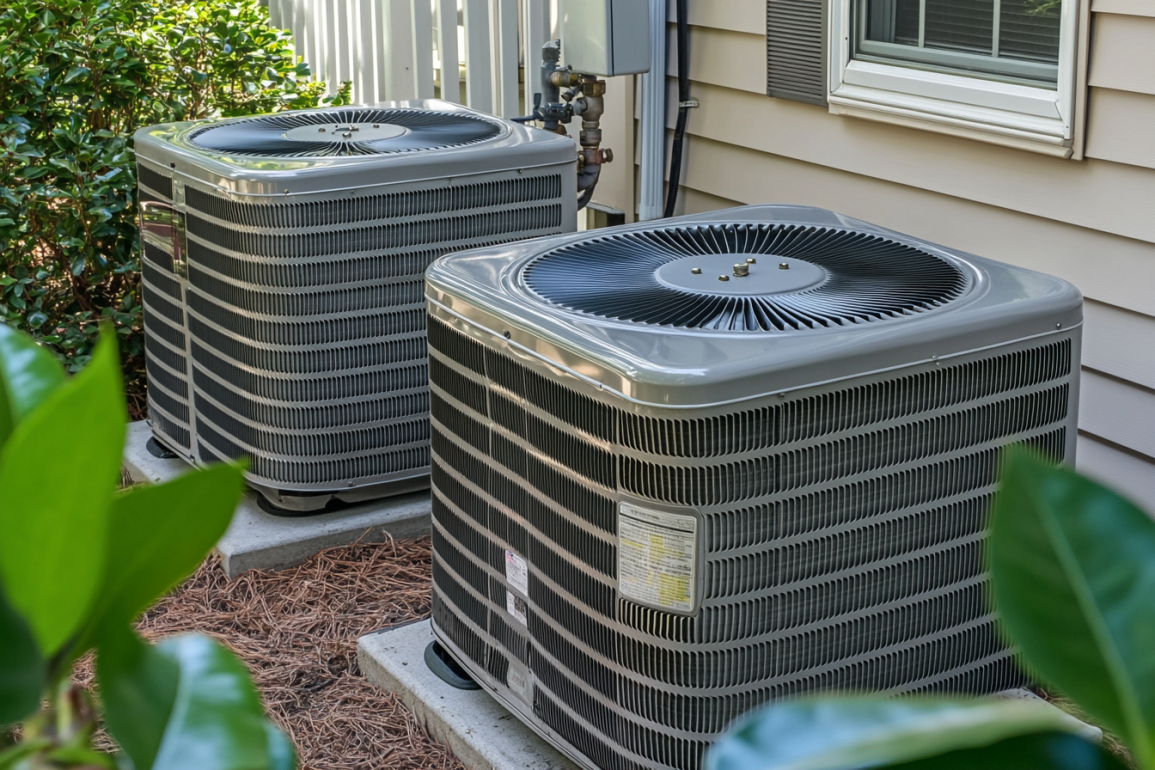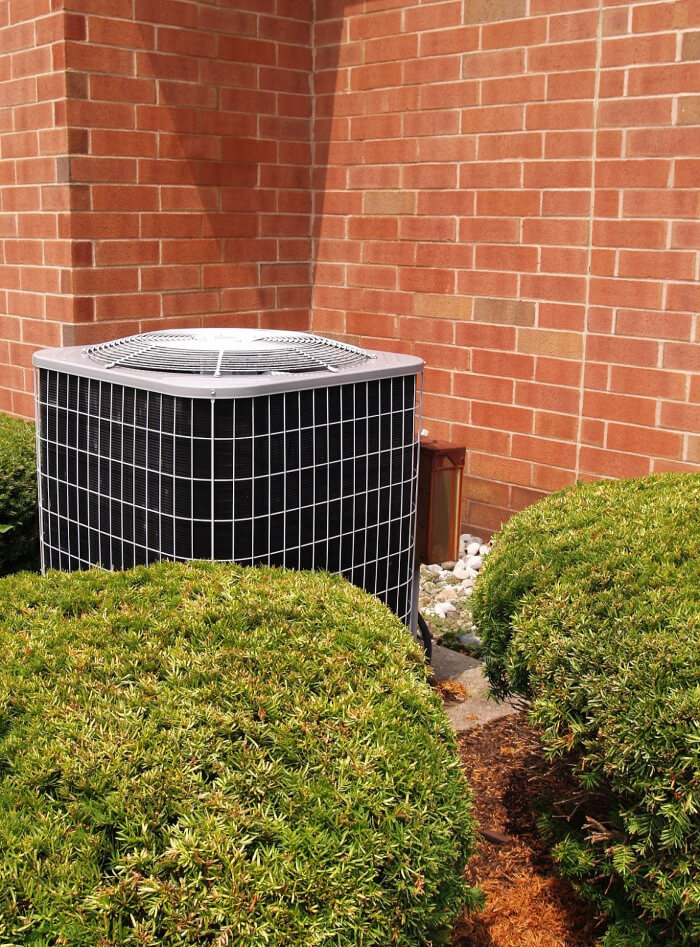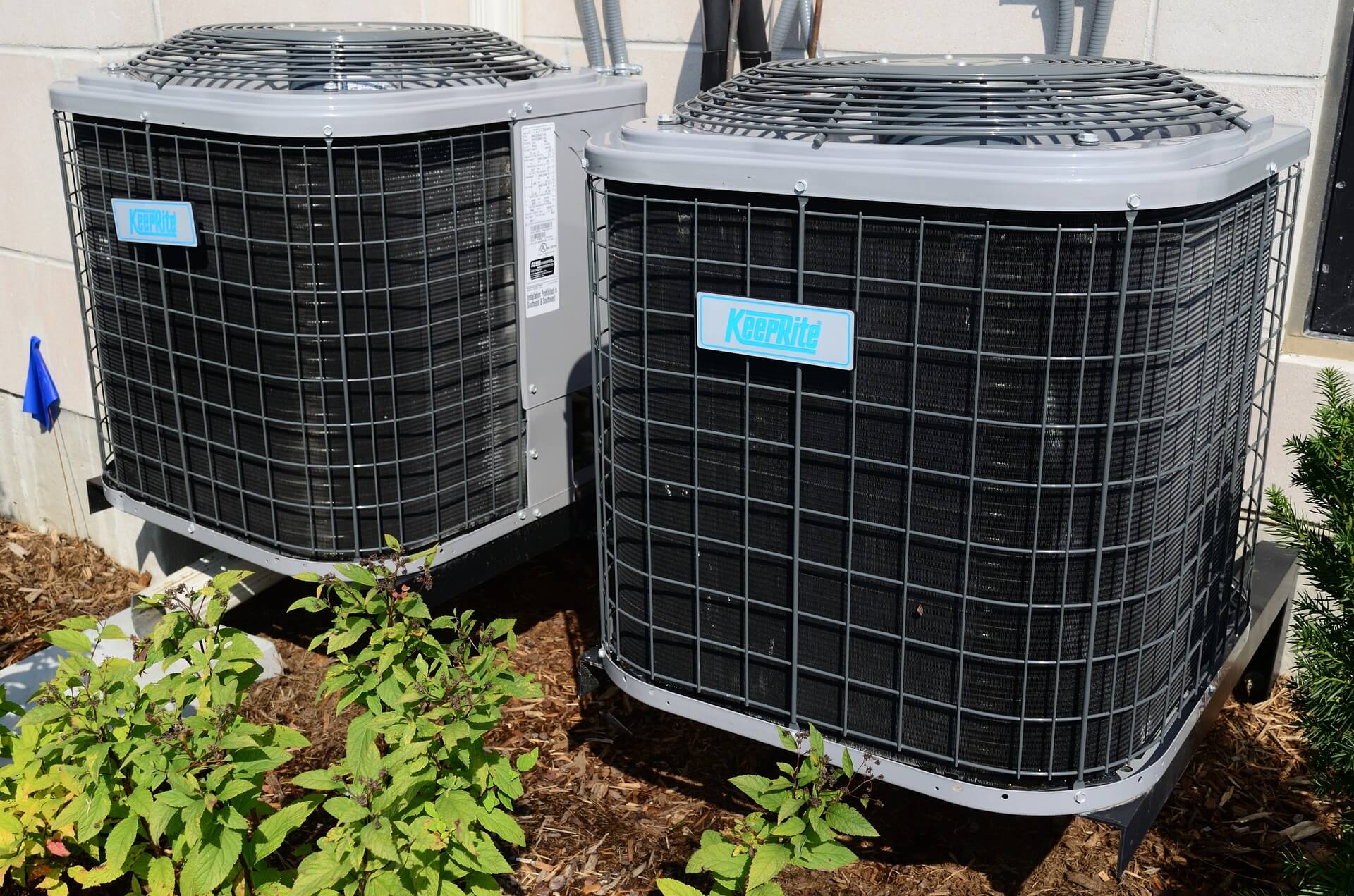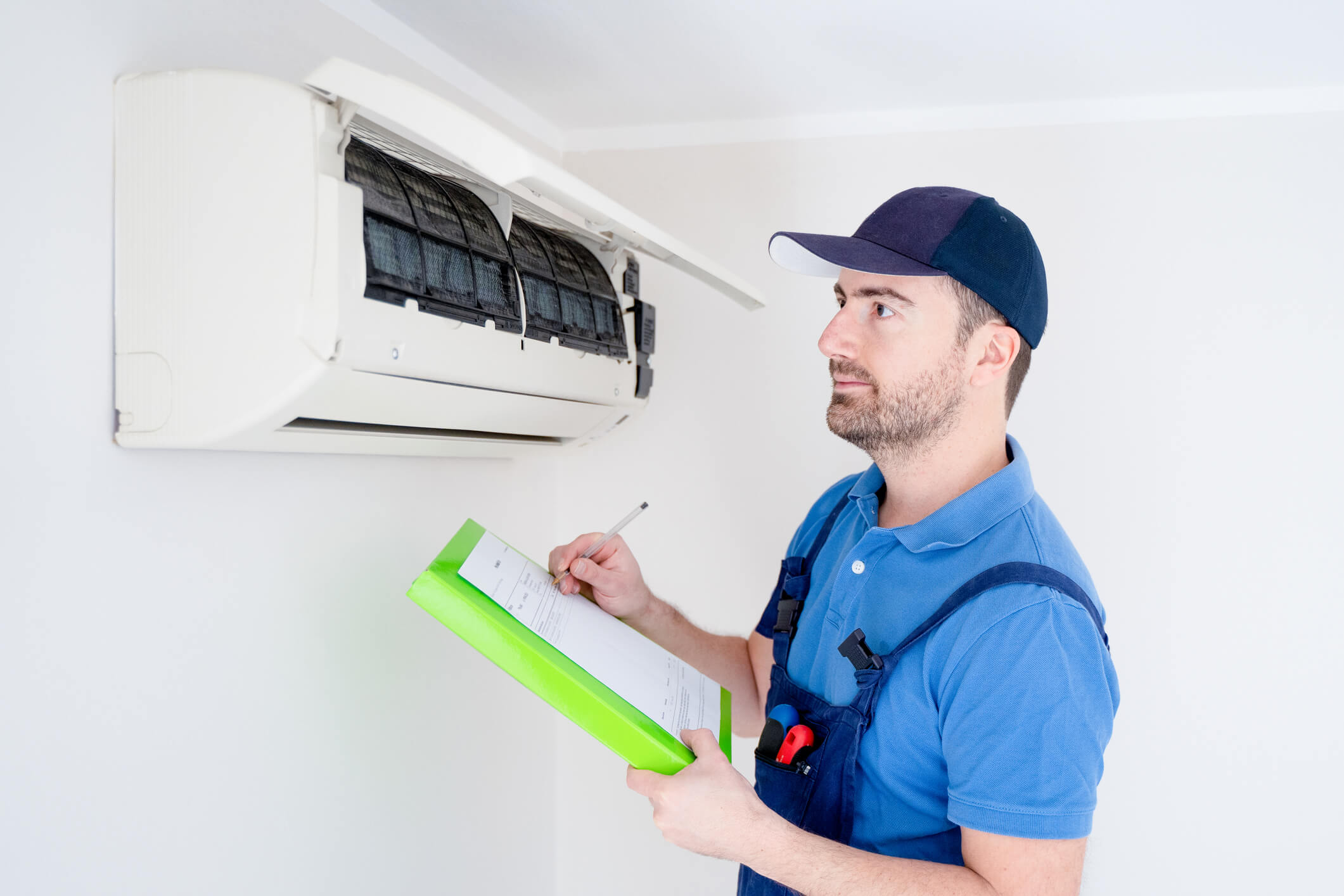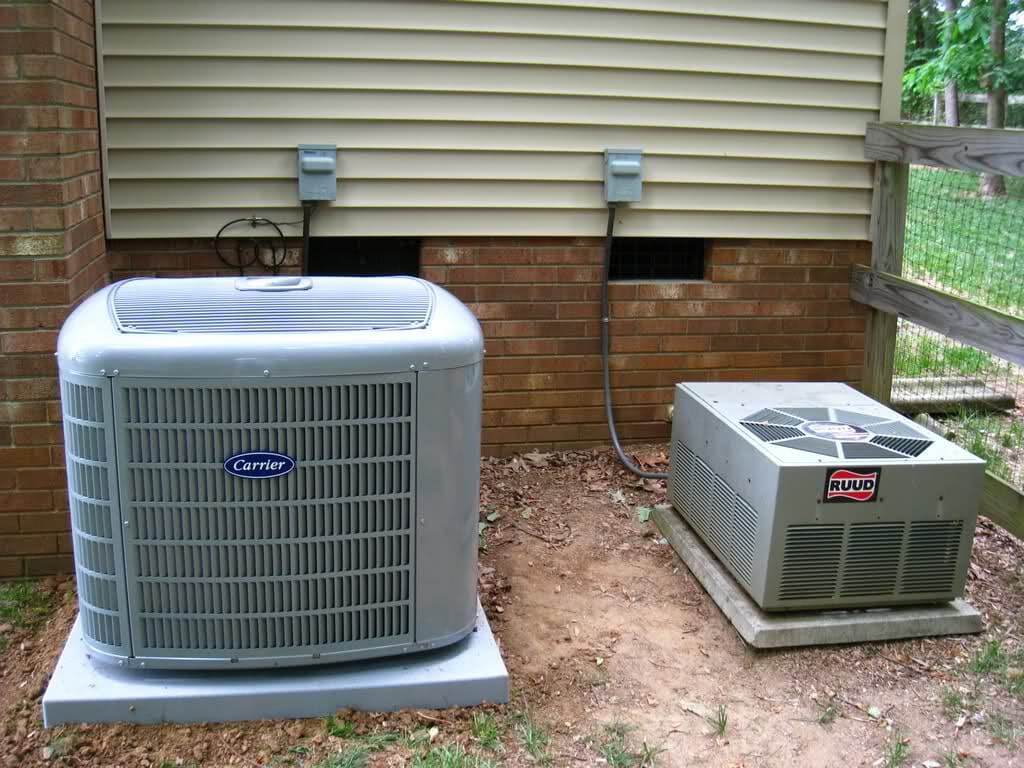Are you doing an HVAC project?
Modernize can pair you with three to four pros in your area, so you can compare options and save time and money.
Is your air conditioner not blowing cold air? Maybe you’ve fiddled with the thermostat and taken a look at the indoor and outdoor parts of the unit, only to remain stumped. With the AC not cooling, the house can get far too warm far too quickly. And it can be especially frustrating if you have an AC running but not cooling.
My AC Is Running but Not Cooling! What Could It Be?
Air conditioning systems can sometimes be fickle, with a variety of components working in tandem to provide that cool relief on a hot day. When your AC fails to deliver cold air, it’s a clear indication that something’s amiss. The reasons can range from simple fixes like a dirty filter to more complex issues such as refrigerant leaks or compressor malfunctions. Pinpointing the exact problem requires a systematic approach, and understanding common culprits can guide you in the right direction. Let’s dive in and explore the potential causes behind this cooling conundrum.
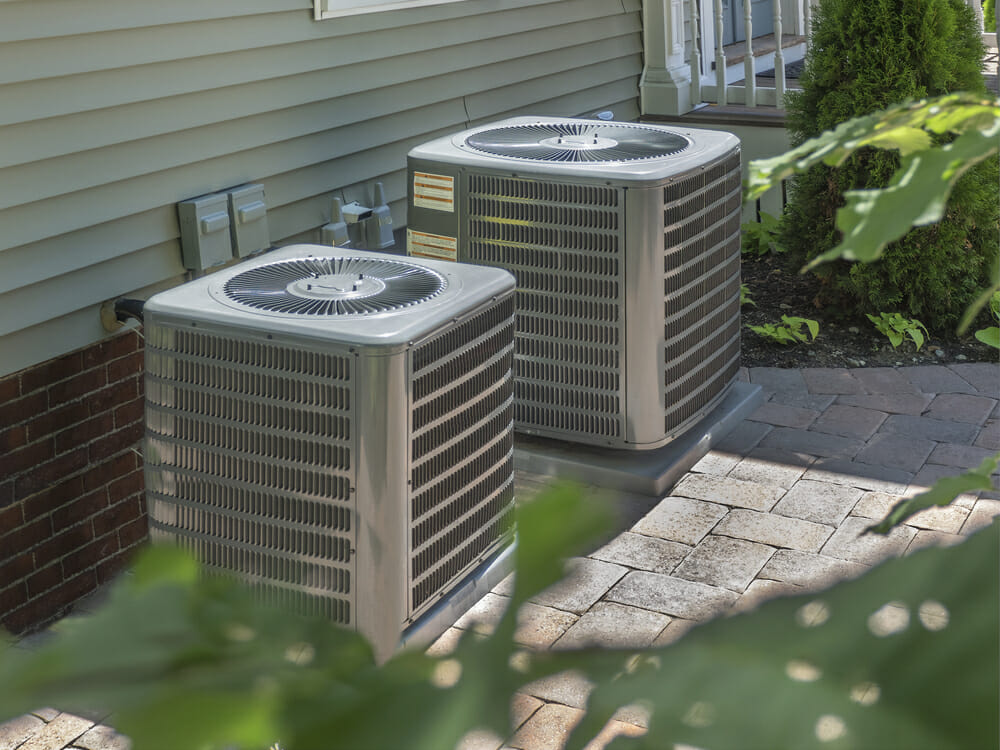 Power and Thermostat Settings
Power and Thermostat Settings
Sometimes the best answer is also the simplest one. Start by checking your power settings. Is the unit getting power?
Then go to your thermostat. Make sure the fan is set to “auto” instead of “on.” This means that air conditioning will blow only when the system is actually cooling your home. Then make sure the thermostat is set to “cool” and not “heat.”
If the thermostat reads “auto” and “cool” and you still aren’t getting cold air, try lowering the setting to something that will force the unit to kick on. If you just set the thermostat at 62 on an 82 degree day, it should come on immediately.
Finally, remember to check the batteries for a battery-powered thermostat. Replace them to be absolutely sure you can rule out a thermostat problem.
Dirty or Clogged Filters
For most AC units, it can be so easy to change the air filter that you might not think it contributes much to the actual cooling of your home. But if the air filter is dirty, the system can’t pull as much air across the evaporator coils of your unit. That means the system has to work much harder and even then, the warm air isn’t actually getting cooled well enough before it comes back into your home. In the worst case scenario, a dirty air filter can lead to overheating and severe damage to the AC unit.
Locate your air filter and pull it out. If you can’t see through it, or if it is a dingy gray or brown color, replace it right away. As a general rule of thumb, your filter will need replacement every 30 to 90 days.
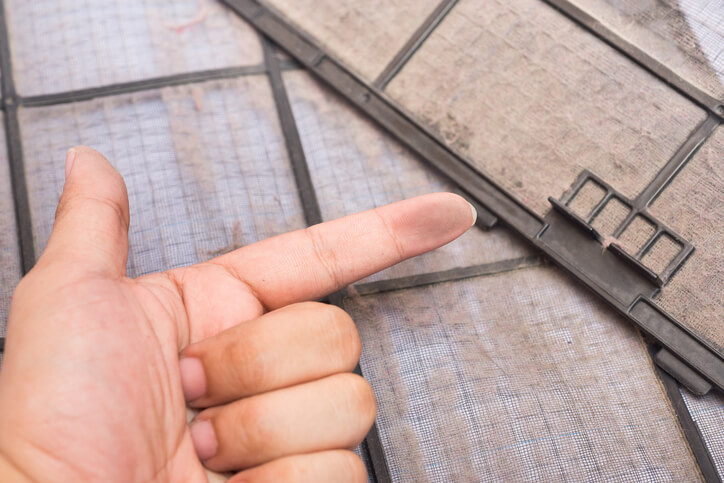 Frozen Evaporator Coils
Frozen Evaporator Coils
When the unit pulls warm air from the house, it runs that air over the evaporator coils, which rapidly cool the air before it goes back into the home. But sometimes, problems with refrigerant or other elements can make the system go into overdrive as it tries to compensate for the issue. As a result, those coils can get cold enough to actually freeze.
How do you know if the evaporator coils are frozen? You will notice:
- The AC isn’t cooling at all, or it is cooling much less than it should be.
- Frost forms on the refrigerant tubing or even the exterior of the outdoor unit.
- There is a dramatic increase in the condensate drainage from the unit.
- The unit shuts down completely (this is a protective measure).
Figuring out what is wrong with the coils is a job for a professional. Give a technician a call and explain the situation.
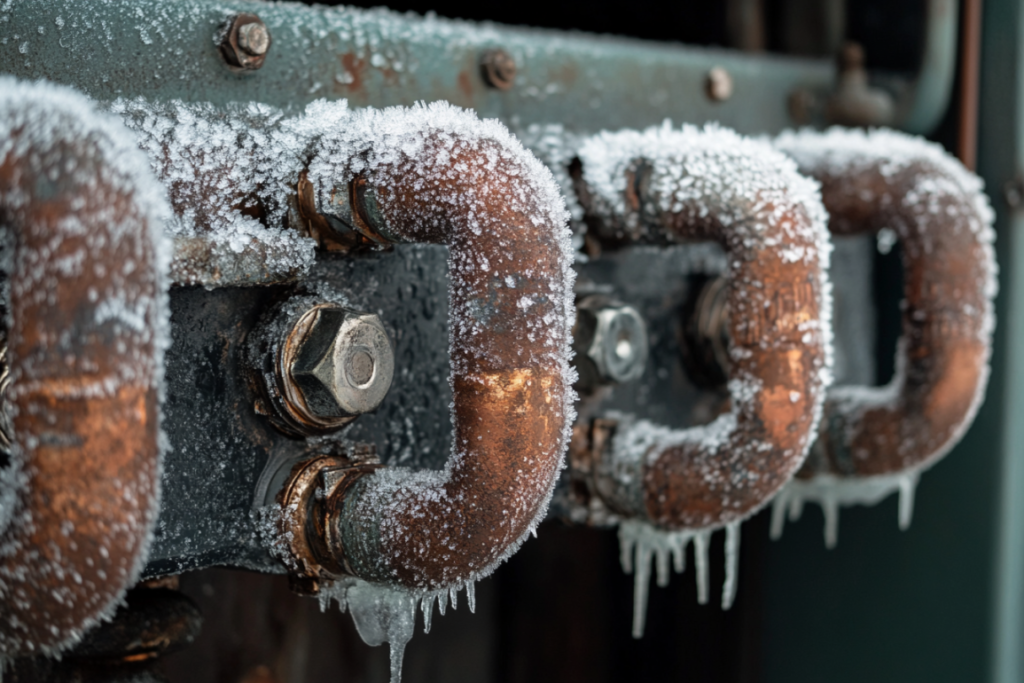 Clogged Drainpipe
Clogged Drainpipe
As the evaporator coils do their work, the unit is also removing humidity from the house for better cooling. That excess moisture goes into a drainpipe that flushes the water from the unit to outside the house. Those pipes are usually in darkness and don’t get flushed often, so they become a haven for bacteria, debris, and even algae.
Over time, that pipe can become clogged. The system tries to protect itself by shutting off. In this case, you might be able to turn it back on for a time, but it will continue to shut down. A professional can clean the clogged drainpipe (or even replace it if necessary) and get you back online in no time.
Compressor Problems
The compressor ensures that refrigerant in your unit stays at the proper pressure. Without the compressor, the unit simply doesn’t work properly. The AC compressor is outside the house and can be vulnerable to a wide variety of problems, from severe weather to the buildup of debris around it.
Homeowners can even be complicit in the problems, such as allowing vines or weeds to grow up around the unit, or storing toys, towels, and household items on top of it. Make sure the unit is free and clear of any potential problems, and cover it tightly during the winter, when not in use.
A compressor leak will allow the refrigerant pressure to drop. The compressor might stop working at all if there is a leak. And sometimes it simply wears out and needs replacement. Only an HVAC professional can tell you for sure.
Find the Right Contractor for Your HVAC Project
Whether you’re ready to begin your project now or need some expert advice, our network of contractors are here to help. With a few simple questions, we’ll find the best local professionals for you
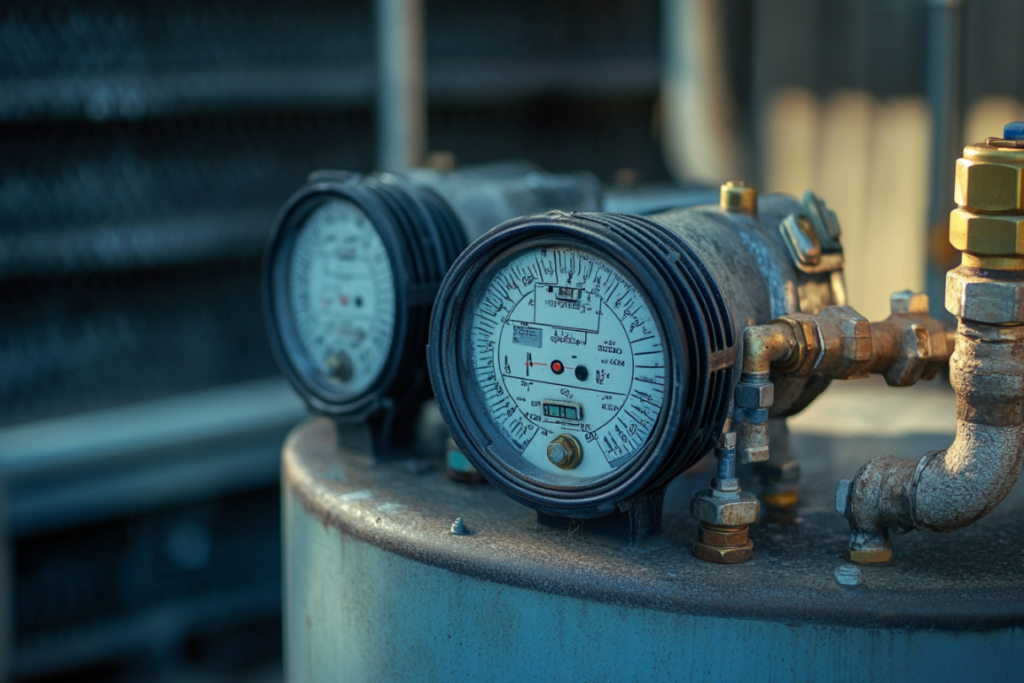 Refrigerant Issues
Refrigerant Issues
The refrigerant, also known as the coolant, moves through the AC coils to cool the warm air flowing from inside your house. If there is a leak in the unit, there isn’t enough refrigerant in the coils. The AC running but not cooling is a sign that the refrigerant might not be adequate.
You shouldn’t work with refrigerant yourself; it’s time to call the pros. They can fix any leaks they find, refill the unit with the proper refrigerant, or even provide a “refresh” with new refrigerant (this is especially important if you have a much older unit that uses Freon, a now-banned chemical that should be replaced with safe and more efficient options).
Dirty Condenser Coils
Condenser coils work hard to cool the air that comes out of your home. But if they are dirty, the refrigerant in them can’t come into good contact with the air, which leaves your AC not blowing cold air. What comes out of your vents will be far too warm.
If you can easily reach the condenser coils, you can clean them yourself with a damp cloth or brush. Keep in mind that plants, bushes, and other vegetation close to the unit can hold onto dust and dirt which then get transferred to those coils with even the slightest breeze. That’s another good reason to keep the area around the outdoor unit clear.
If you can’t reach the coils to clean them, call a professional to get the job done. (And in the meantime, consider checking out these AC maintenance tips you can do yourself.)
Faulty Fans or Motors
The whole cooling process of your AC unit depends upon fans and motors. If the air can’t blow across the coils, nothing in the system actually works. The biggest culprit for a faulty fan is debris caught between the fins or blades. This might be especially true if you have just suffered a serious storm and debris from trees and other vegetation has been blown around. If this is the case, turn off your system while you carefully clear debris from the fan.
When the fan doesn’t work properly, the unit can overheat. If you notice that the fan isn’t turning no matter what cleaning you do, turn off the unit to avoid motor problems. At this point, it’s time to consult a professional to figure out what’s wrong.
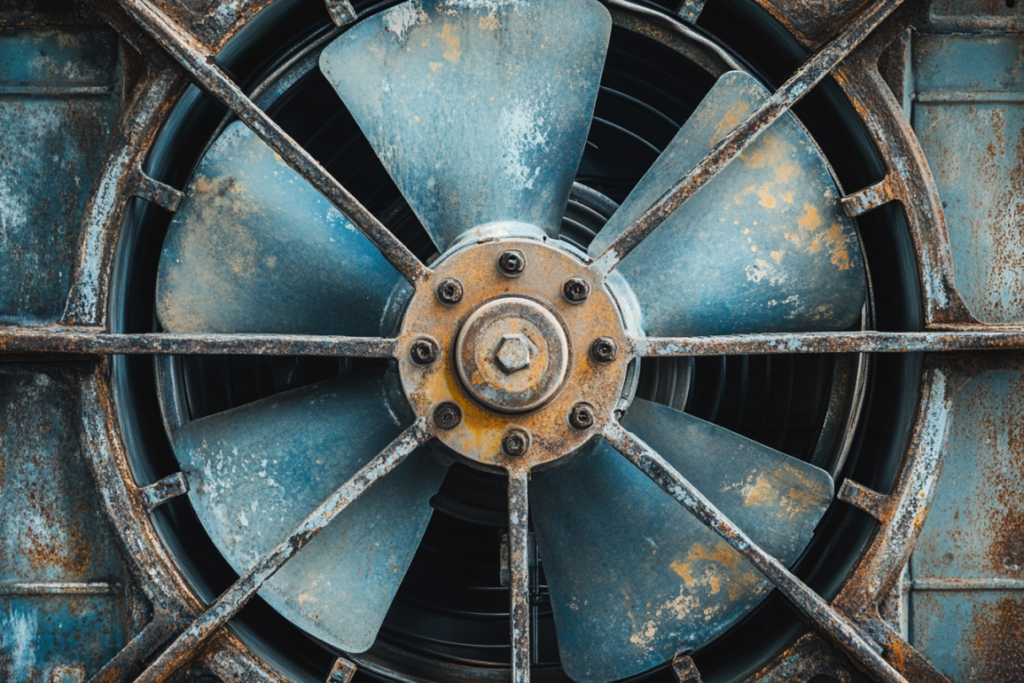 Ductwork Problems
Ductwork Problems
Your cooling system is almost useless without the ductwork. As the cool air comes back into the home, it is powered through the ductwork to every room, where it lowers the temperature. But if the ductwork doesn’t fit together well, has leaks or punctures, or has turned into a home for pests, you might not get the cooling power you need. In some serious cases, so much airflow is lost that your AC not blowing cold air becomes a common problem.
If everything else about your AC seems to be working just fine, the ductwork could be the concern. This is especially true if the problem with no cooling is happening in only certain rooms of the home.
If you can see into the ducts, inspect them with a flashlight. If you can access the outside of the ducts but not the inside, try lighting a stick of incense and moving it along the ductwork to find any places where the smoke is blown away from the duct — that indicates a problem. And if neither of those things help, call an HVAC pro to help you figure out where you’re losing the cool air. They can help you by cleaning the ductwork, too.
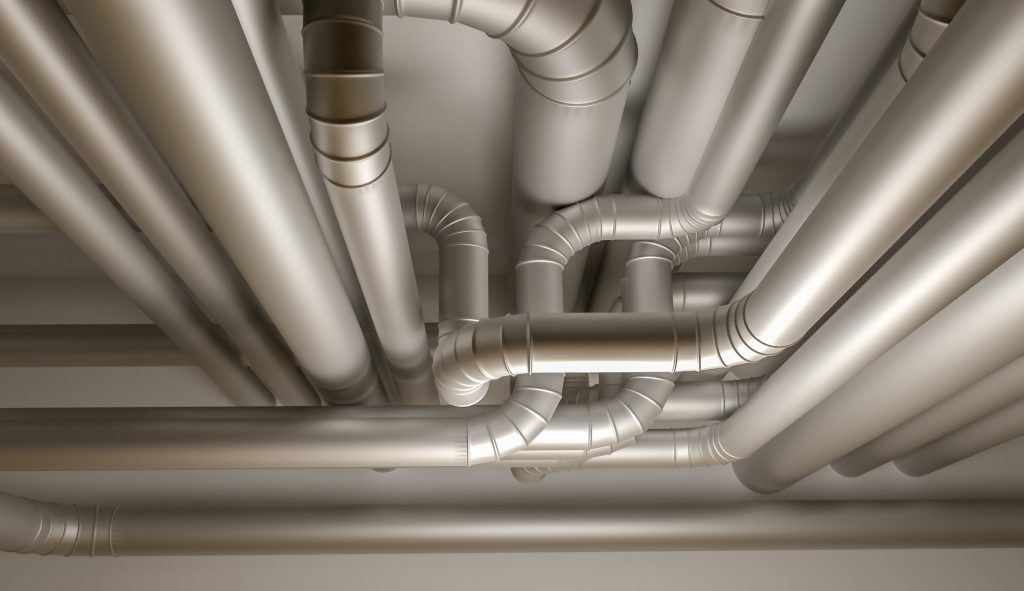 Oversized or Undersized AC Units
Oversized or Undersized AC Units
Though it might seem like an oversized AC unit would guarantee all the cool air you need, that’s not exactly the best route to take. That’s because an oversized unit cycles on and off much more often than a properly-sized unit will, and that leads to greater wear and tear. The larger motor also leads to higher utility bills.
An undersized unit, on the other hand, will struggle to keep up with the increasingly hot days of summer. If you have an undersized unit, it might not feel like it’s blowing cold air. By the time the air reaches the ducts, it has already warmed enough that the cooling just isn’t sufficient.
Not sure if your system is the right size? Use this rule of thumb: take the square footage of your home and multiply that by 25. This should give you the number of British Thermal Units (BTUs) per hour that you need for a properly-sized air conditioner. If your unit is well above or below that number, consider replacing the HVAC unit with one that is right for your home.
Importance of Regular Maintenance
Rather than be surprised by a sudden shutdown or slowdown of your air conditioner, opt for routine maintenance at the start of every summer and winter season. A qualified HVAC contractor can keep your AC unit in good working order by checking the condenser, coils, motors, refrigerant levels, and more. At the end of the summer, they can help you do what’s necessary to winterize the unit and make sure it can handle the winter months. Let Modernize connect you with the best HVAC contractors in your area and set up your appointment today!
Find the Right Contractor for Your HVAC Project
Whether you’re ready to begin your project now or need some expert advice, our network of contractors are here to help. With a few simple questions, we’ll find the best local professionals for you
Reviews from Real Homeowners
Welcome to Homeowner Resources! We are the Modernize blog. Modernize pairs more than 3 million homeowners a year with pre-vetted contractors in their area. This blog started because we believe homeowners should know everything about their homes, from how their HVAC works to which front door colors they might love. On Homeowner Resources, you can find information on every part of your home, right down to how you can negotiate with contractors to get the best price. Here's more about the blog.
Need a contractor? Learn more about how Modernize finds the right pro for you.
